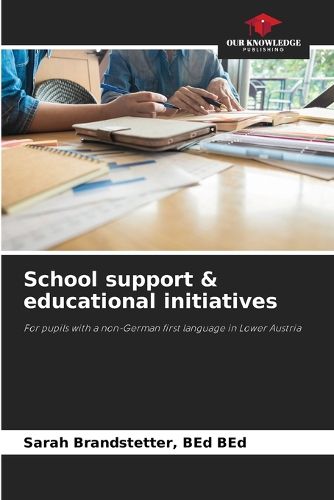Readings Newsletter
Become a Readings Member to make your shopping experience even easier.
Sign in or sign up for free!
You’re not far away from qualifying for FREE standard shipping within Australia
You’ve qualified for FREE standard shipping within Australia
The cart is loading…






In 2016, approximately 22.1% of people living in Austria, a country of immigration, had a migrant background. This multiculturalism is reflected in an even higher proportion in schools. In the 2015/16 school year, the proportion of pupils with a first language other than German in Austrian primary schools was as high as 28.7%. An above-average number of these pupils are identified as having special educational needs (SEN), which raises two key questions. What language support methods and concepts are available to counteract SEN? And how is language support for children whose first language is not German actually implemented in schools? The results of five case studies conducted using a questionnaire suggest that educators lack knowledge about existing concepts and measures for language support and that teachers only use the methods they are familiar with to a very limited extent. They describe these as ineffective, are hardly informed about the concepts available at their schools and have little knowledge of any initiatives or measures at the school.
$9.00 standard shipping within Australia
FREE standard shipping within Australia for orders over $100.00
Express & International shipping calculated at checkout
In 2016, approximately 22.1% of people living in Austria, a country of immigration, had a migrant background. This multiculturalism is reflected in an even higher proportion in schools. In the 2015/16 school year, the proportion of pupils with a first language other than German in Austrian primary schools was as high as 28.7%. An above-average number of these pupils are identified as having special educational needs (SEN), which raises two key questions. What language support methods and concepts are available to counteract SEN? And how is language support for children whose first language is not German actually implemented in schools? The results of five case studies conducted using a questionnaire suggest that educators lack knowledge about existing concepts and measures for language support and that teachers only use the methods they are familiar with to a very limited extent. They describe these as ineffective, are hardly informed about the concepts available at their schools and have little knowledge of any initiatives or measures at the school.